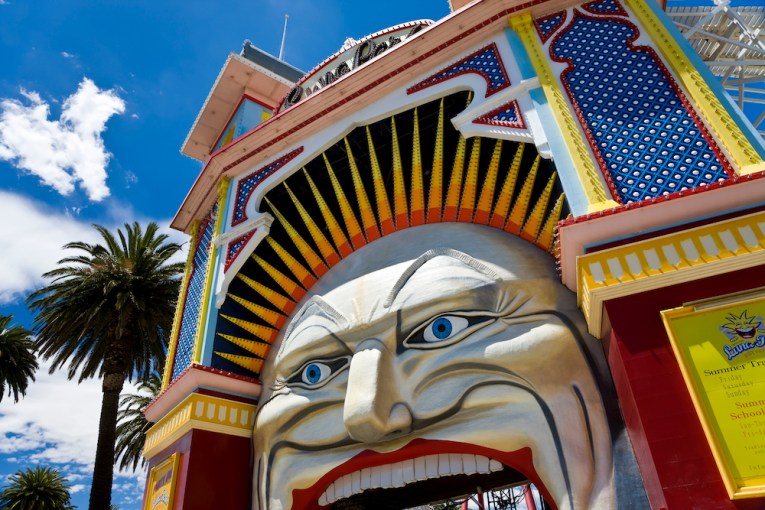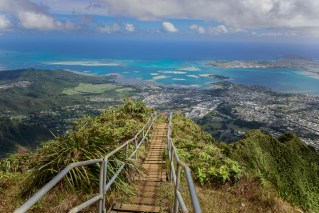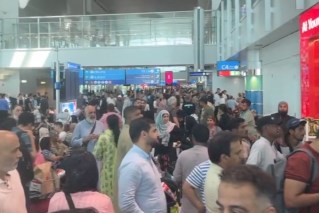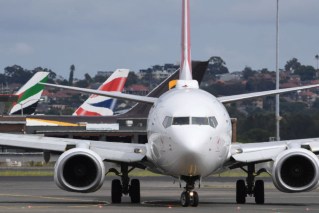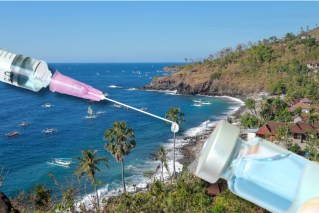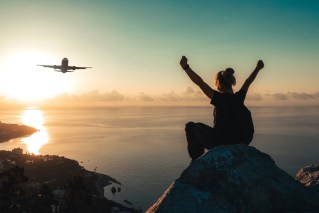Back to Bali: Australia’s favourite island is looking to a new era
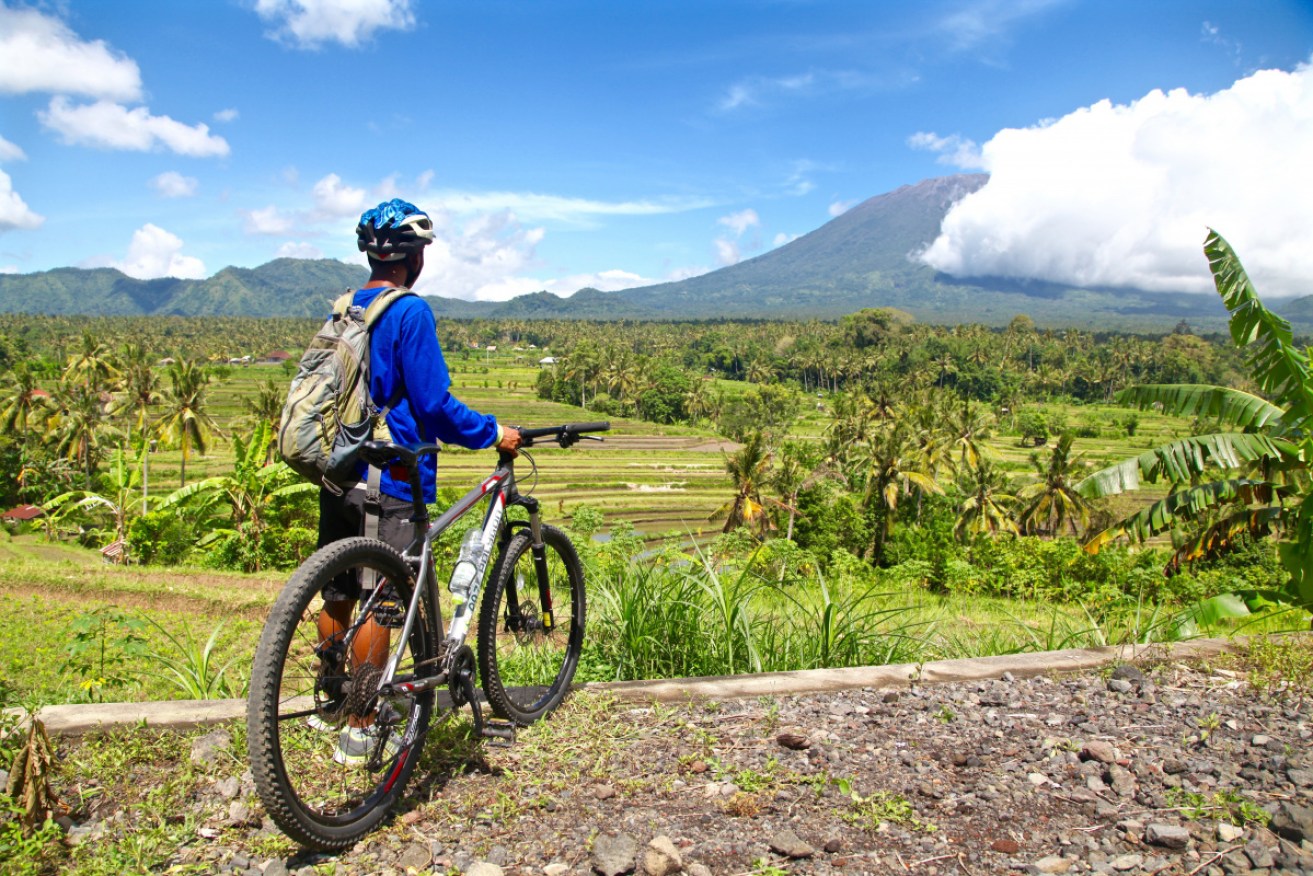
Bali's economy has been decimated by the coronavirus crunch on tourism.
When the World Health Organisation declared COVID-19 a pandemic earlier in 2020, Bali was identified as a potential hotspot for the killer virus.
More than 110,000 Chinese tourists arrived at Bali’s airport between January 1 and February 5, when visitors from China were banned. Among them were up to five weekly flights from Wuhan, where the coronavirus originated.
Visits from tourists of all nationalities were banned in March, but Balinese still gathered in their thousands at Hindu ceremonies to pray for the island’s safety, in defiance of social-distancing policies.
Make no mistake. Bali’s economy, 60 to 80 per cent of which is dependent on tourism, has been gutted.
But from a health and public safety perspective, the island has emerged relatively unscathed – for reasons that continue to baffle infectious disease experts. By early June, there had been only five deaths and 510 confirmed infections, two-thirds of whom have fully recovered, according to coronavirus tallying resource Worldometers.
One of the suspected cases was an Australian man who died in his girlfriend’s arms last Wednesday. Local authorities are awaiting the results of a forensic examination to determine whether David Sparenburg died of COVID-19.

A lone tourist at the Kuta Beach hotspot.
Some experts point to the island’s heat and humidity, which is thought to slow the spread of the virus. Others point to Bali’s young demographic and an associated theory that an asymptomatic outbreak has already run its course through the island.
Whatever the reason, the so-called miracle of Bali has lit a firecracker under the island’s global prestige. Search results for users of travel shopping website Expedia in Australia show Bali as the no.2 bucket-list destination for travel next summer. Online ticketing company Booking.com also ranks Bali as the second most popular place in the world travellers want to return to when the pandemic is over.
“Search patterns would indicate that when international travel returns there may be increased interest in bucket-list destinations,” said a spokesperson for flight comparison site Skyscanner, which has Bali among its users’ top-10 most-searched destinations.
But when exactly will the island reopen for tourism? And what will holidays there look and feel like under the new normal?

Bali’s resorts are still largely empty – but planning for the return of tourists.
Litmus test
No date has been set to lift temporary travel restrictions that prevent tourists from visiting Bali (or, indeed, for Australians to head overseas at all). Reports that suggest otherwise are false, according to Bali’s Ngurah Rai Immigration Office and the island’s tourism board.
“We are still drafting the new health protocols for all economic sectors including tourism. We have not yet decided when it will start,” Bali Tourism Board chairman Gus Agung said.
“Based on our current discussions with health experts, we are hoping to open in late July. We will do it step-by-step, starting with domestic tourism.”
Mr Agung’s estimate gels with information provided by Indonesia’s Ministry for Economic Affairs, which identifies the late July or early August for a reboot of all economic activity in the country.

Visitors will be encouraged to buy tickets to favourite spots through the new Bali App.
Bali will not open with a big bang.
“The opening of the activities will be done gradually, selectively, prioritising small locally owned businesses starting in areas with low COVID-19 cases,” said Ida Ayu Indah, marketing chief at the state Bali Tourism Office.
“We will also consult the Balinese Hindu calendar to ensure opening dates are auspicious.”
Technology will also play a part in return of tourists. The Bali Tourism Board has digitised ticketing systems for the Monkey Forest in Ubud, Tanah Lot sea temple and many of the island’s most popular tourist attractions through the long-awaited Bali App. Visitors will be able to book and pay for limited slots with credit cards.
For and against
The Four Seasons Resort Bali At Sayan on the outskirts of Ubud – named the world’s best hotel in Travel + Leisure magazine’s 2018 poll – will be one of the first internationally branded hotels to reopen on the island on July 1.
Staff will wear masks, although guests will not have to. Restaurant tables and day beds will be spaced further apart and there will be physical distancing at yoga and meditation classes.
Room service will be left and collected in trays outside rooms, while an optional app linked to services will help reduce guest-to-staff contact.
“While the Four Seasons experience may look different in this new COVID-19 environment, it will feel the same,” said Marian Carroll, Australian spokesperson for Four Seasons Bali.
But some operators in Bali think it is still too soon.
“It’s important to get the economy going again but first we have to be sure we can create a safe working environment,” said Will Meyrick, the Perth chef who is behind Mamasan, Sarong and half a dozen more of Bali’s most popular fine-dining restaurants.
“We have not set a date to reopen yet but hope it will be sometime within the next three months.”
The argument, however, is somewhat of a farce because hundreds of small businesses continue to trade in the Seminyak-Canggu beachside tourist areas. From restaurants and cafes, to pool clubs, gyms and sunset bars, the only restriction is they must shut at 9pm.
They cater mainly to the thousands of expats still living on the island, a portion of who attend parties at private villas and surf every day on beaches that are supposed to be closed.

No social distancing on display at a crowded Denpasar market in May.
Who will come?
Ida Ayu Indah at the Bali Tourism Office said no decision had been made about when international tourists or when beaches might open. But Christopher Burns, director of business development for the Bali App said: “If all goes well with domestic tourism, Bali will tentatively open for international tourism in October.”
But which countries will allow their citizens to visit?
As the first country to recover from COVID-19 and the largest source country for tourists 2019, China is the strongest candidate.
“We cannot predict the future but I think it will be easier for Chinese tourists because they have a strong central government,” said Mr Agung at the Bali Tourism Board.
“But what we really want are Australians because they love Bali and they support all the small local businesses. We hope are going to talk to the Australian embassy about opening a travel corridor.”
Given the low COVID-19 testing rate in Indonesia – only 1100 per million people compared to 54,868 per million in Australia and 55,147 per million in New Zealand – Australia is unlikely to entertain the idea of a travel corridor to Bali. And few Australians will holiday overseas under current quarantine laws.
“Many of our Australian followers on social media tell us they want to come back,” said Janet De Neefe, the Australian-born owner of Casa Luna restaurant and founder of the Ubud Food Festival.
“But quarantine is a major deterrent. Who wants to spend two weeks holed up in a hotel room? I think the Australian government wants people to spend their money in Australia. But people should have options.”
Ms Carroll said WA residents would be among the first to return.
“Here in Perth, Bali is a second home for many people. They go to Bali several times a year and have formed strong friendships with Balinese people. If you mention Bali, their eyes light up,” she said.
“I’d expect that once people can travel to Bali without quarantine, and assuming airfares don’t skyrocket, they will want to go back and support the economic recovery as soon as is possible.”
